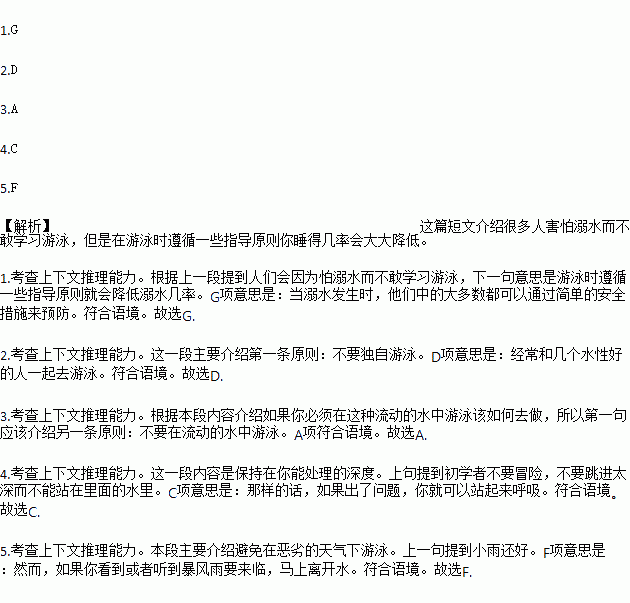题目内容
A lot of people put off learning how to swim because they’re afraid of drowning.
1.Follow these guidelines whenever you’re swimming,and the odds of drowning will decrease dramatically:
Don’t swim alone.2.An area with a lifeguard is usually a best place to swim in groups.
3.If you’re learning to swim in an ocean or river,you’ll need to be more aware of the motion of the water.If you must learn to swim this way,try to make sure you’re with someone who knows what he or she is doing,and be sure to read the steps about getting out of a rushing river.
Stay within a depth you can handle.When you’re first learning how to swim,don’t take the risk of diving into water that’s too deep for you to stand in.4.
Avoid swimming during severe weather conditions.Swimming in a light rain shower should be fine.5.This rule is to be followed regardless of how well you can swim.
A.Don’t start out swimming in moving water.
B.You needn’t care too much about the heavy rain,either.
C.That way,if something goes wrong,you can simply stand up and breathe.
D.Always go swimming with several other persons who are strong swimmers.
E.Do stay in the clean and rapid water to fully enjoy the excitement when swimming.
F.However,if you see or hear a storm approaching,get out of the water immediately.
G.When drownings occur,most of them could have been prevented by simple safely measures.
 阅读快车系列答案
阅读快车系列答案
